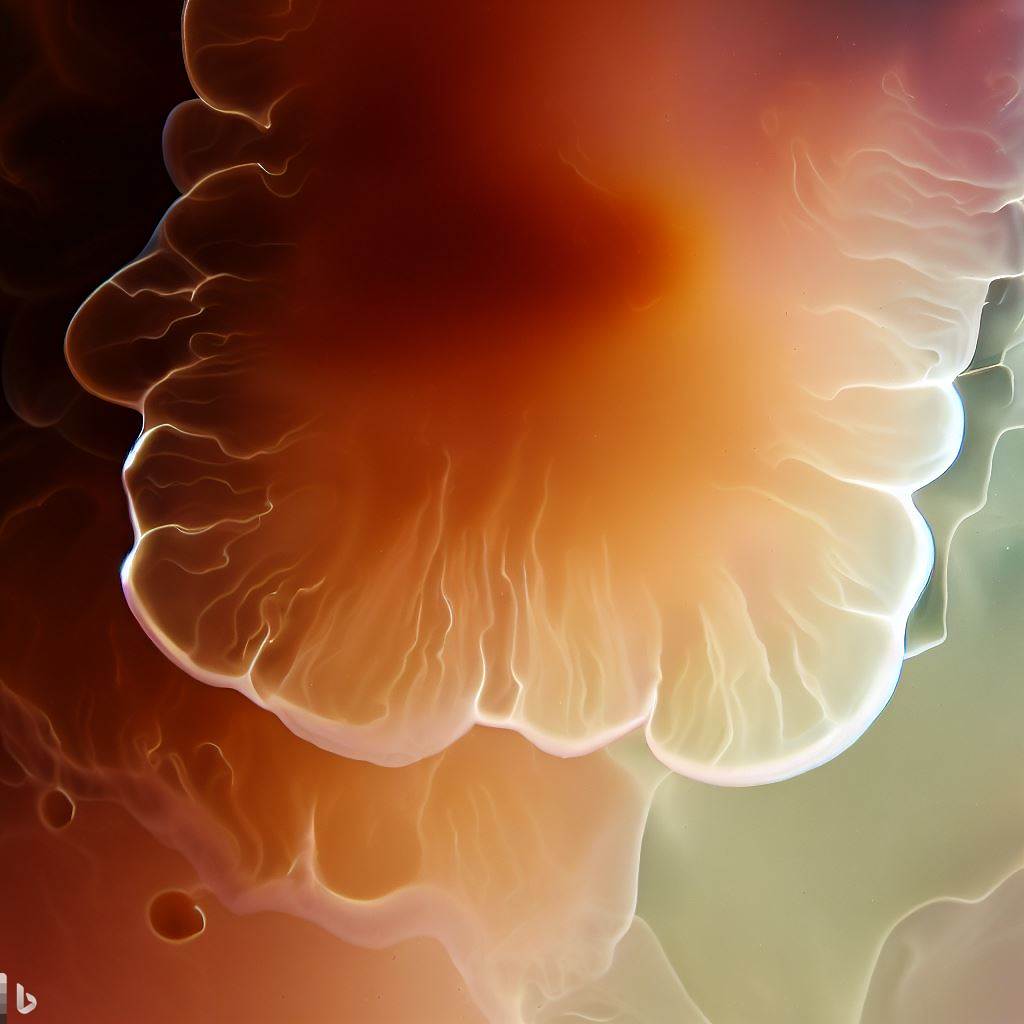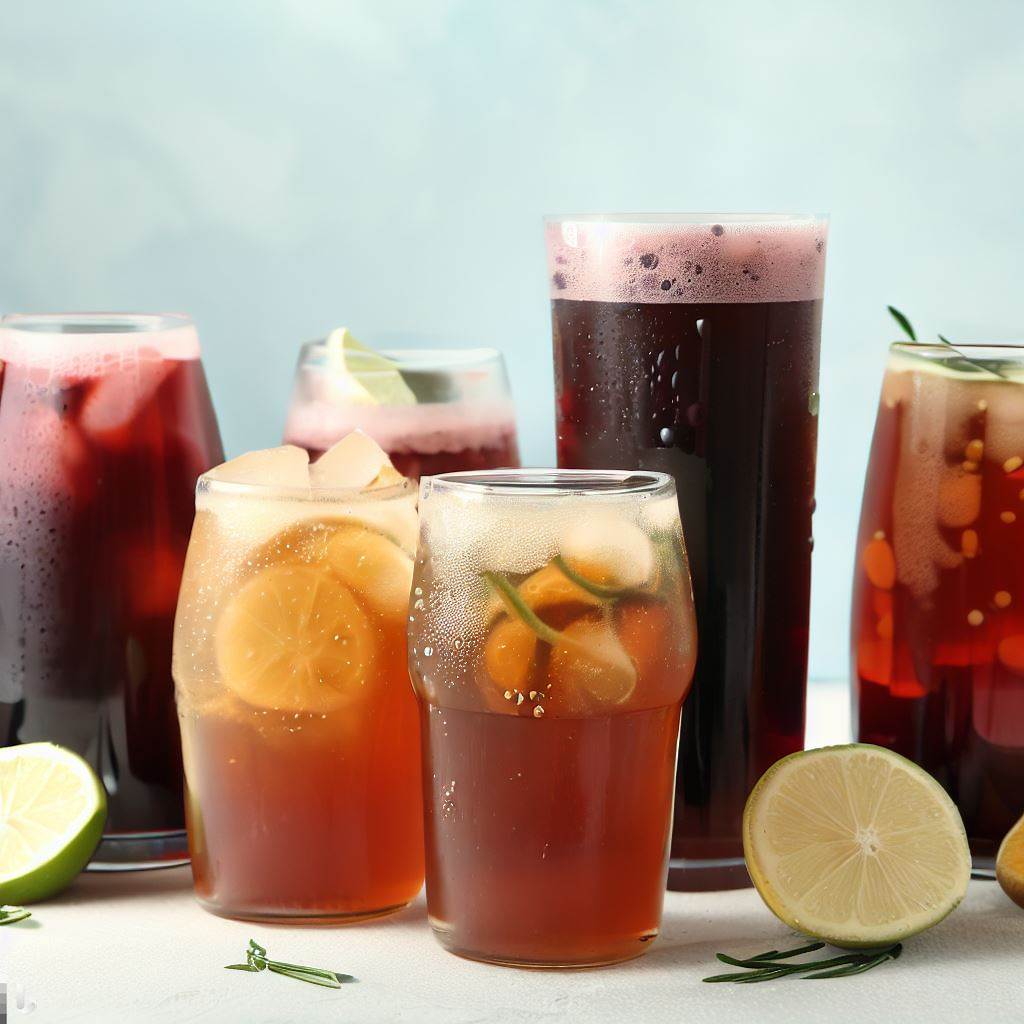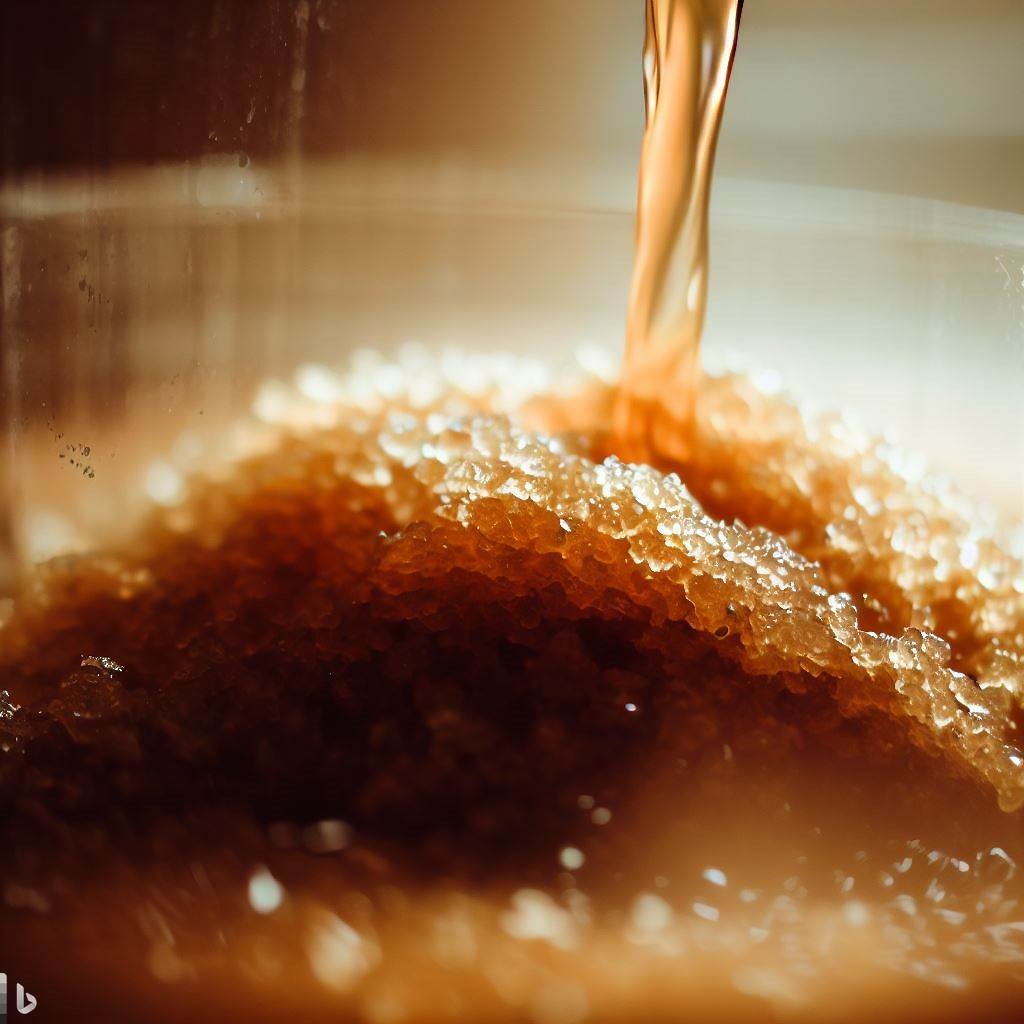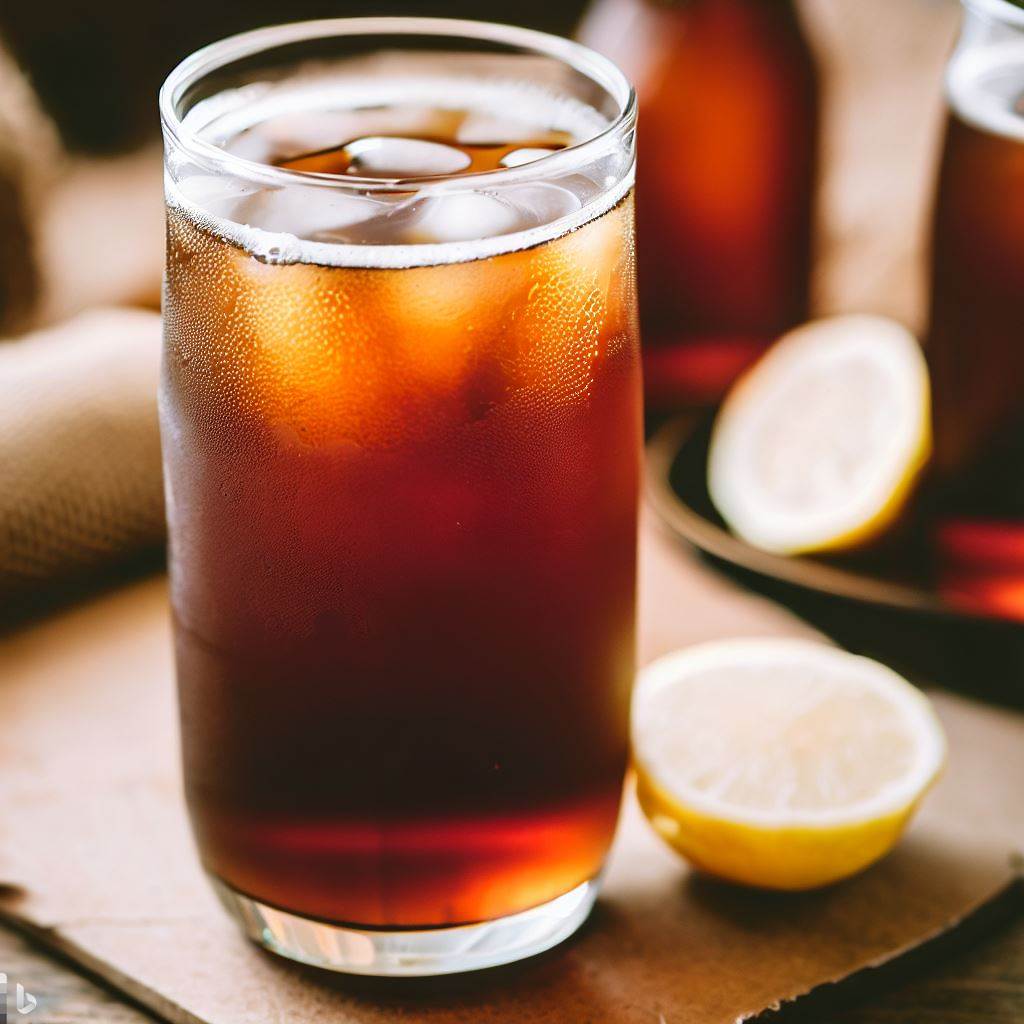Kombucha has gained immense popularity in recent years as a refreshing and healthful beverage. This section will delve into the art of kombucha, its origins, and the various health benefits associated with its consumption.
1. The Art of Kombucha: Exploring Flavors, Health Benefits, and Brewing Techniques
Kombucha is a fermented tea beverage that is believed to have originated in East Asia thousands of years ago. It is made by fermenting sweetened tea with a symbiotic culture of bacteria and yeast (SCOBY). The SCOBY consumes the sugar and releases beneficial compounds, resulting in a tangy, effervescent drink. In this blog post from Greek Mountain Kombucha we will dive into The Art of Kombucha and provide a comprehensive guide to this unique, tangy beverage! Lets dive in!
2. Origins of Kombucha

The exact origins of kombucha are still debated, but it is commonly believed to have originated in ancient China or Japan. It was then spread to other parts of Asia, Russia, and eventually gained popularity worldwide. Each culture has its own unique variations and brewing methods.
3. Health Benefits of Kombucha
Kombucha is often hailed for its potential health benefits. While scientific research is still ongoing, some of the claimed benefits include improved digestion, detoxification, immune system support, and increased energy levels. It is also a rich source of probiotics, antioxidants, and beneficial enzymes.
Brewing Kombucha at Home
Making kombucha at home can be a rewarding and cost-effective way to enjoy this probiotic-rich beverage. This section will guide you through the process, from the necessary equipment to the step-by-step brewing instructions.
1. Equipment Needed
Before you start brewing kombucha, you’ll need a few essential items. These include a glass jar, a breathable cover, a brewing vessel, organic tea, sugar, and a SCOBY. It’s important to use non-reactive materials to prevent any unwanted interactions during fermentation.
2. Choosing the Right Ingredients
The quality of ingredients used in kombucha brewing directly affects the flavor and health benefits of the final product. Opt for organic tea, preferably black or green, and choose unbleached cane sugar. Avoid using flavored teas or artificial sweeteners, as they may negatively impact the fermentation process.
3. Step-by-Step Brewing Process
Here’s a simplified step-by-step guide to brewing kombucha at home:
- Boil water and steep the tea.
- Dissolve sugar in the tea and let it cool.
- Transfer the cooled tea to the brewing vessel.
- Add the SCOBY and a cup of starter liquid.
- Cover the vessel with a breathable cloth and secure it.
- Allow the kombucha to ferment for 7-14 days, depending on your taste preferences.
- Taste the kombucha periodically until it reaches the desired level of tanginess.
- Once fermented, carefully remove the SCOBY and reserve some of the liquid as starter for the next batch.
- Bottle the kombucha, leaving some headspace for carbonation.
- Let the bottled kombucha undergo a secondary fermentation for 1-3 days.
- Refrigerate the finished kombucha to slow down fermentation and enjoy it chilled.
4. Flavoring and Secondary Fermentation
After the primary fermentation, you can customize the flavor of your kombucha by adding fruits, herbs, or spices. This process, known as the secondary fermentation, adds extra carbonation and enhances the taste. Simply add your chosen flavorings to the bottles, seal them tightly, and let them ferment for a few more days before refrigerating.
Exploring Different Kombucha Varieties

Kombucha comes in a wide variety of flavors and combinations. In this section, we’ll explore different flavor profiles and inspire you to experiment with your own unique kombucha creations.
1. Classic Kombucha Flavors
Classic kombucha flavors include plain, ginger, and lemon. These variations provide a refreshing and straightforward taste, highlighting the natural tanginess of kombucha. They are perfect for those who prefer a more traditional flavor.
2. Fruit Infused Kombucha
Fruit-infused kombucha is a popular choice for its vibrant and fruity taste. Common fruit additions include berries, citrus fruits, and tropical fruits. The combination of the natural sweetness from the fruit and the tanginess of kombucha creates a delightful flavor balance.
3. Herbal and Floral Kombucha
Herbal and floral kombucha takes advantage of the aromatic qualities of herbs and flowers to create unique flavor profiles. Examples include lavender kombucha, chamomile kombucha, and mint kombucha. These combinations offer a refreshing and aromatic experience.
4. Unique and Exotic Kombucha Combinations
For the adventurous kombucha enthusiasts, unique and exotic flavor combinations can be explored. Think of kombucha infused with spices like turmeric and cardamom, or even savory ingredients like cucumber and dill. These combinations provide a surprising twist to traditional kombucha.
Kombucha and Gut Health
One of the most significant benefits associated with kombucha consumption is its potential positive impact on gut health. This section will explore the role of kombucha in promoting a healthy gut and managing digestive disorders.
1. Probiotics and Digestive Health
Kombucha is a natural source of probiotics, which are beneficial bacteria that support a healthy digestive system. Probiotics help restore the balance of gut bacteria, improve digestion, and alleviate symptoms of gastrointestinal issues like bloating and constipation.
2. Kombucha’s Role in Balancing Gut Microbiome
The gut microbiome plays a crucial role in overall health and well-being. Consuming kombucha can help maintain a diverse and balanced gut microbiome due to its probiotic content. A healthy gut microbiome is associated with improved immune function, mental health, and even weight management.
3. Managing Digestive Disorders with Kombucha
Some individuals with specific digestive disorders, such as irritable bowel syndrome (IBS) or inflammatory bowel disease (IBD), have reported positive effects from incorporating kombucha into their diet. However, it’s essential to consult a healthcare professional before making any significant dietary changes.
Kombucha and Immune System Boost
In addition to supporting gut health, kombucha is often praised for its potential immune system-boosting properties. This section will explore how kombucha can contribute to a strong and resilient immune system.
1. Antioxidants in Kombucha
Kombucha contains antioxidants, which are compounds that help neutralize harmful free radicals in the body. Free radicals can damage cells and contribute to chronic diseases. By consuming kombucha regularly, you can provide your body with an extra dose of antioxidants to support immune function.
2. Detoxification and Cleansing Benefits
The natural fermentation process of kombucha produces organic acids that have detoxifying properties. These acids, such as gluconic acid and glucuronic acid, help the liver in the detoxification process, promoting overall body cleansing. A well-functioning liver is essential for a robust immune system.
3. Strengthening the Immune System with Kombucha
The combination of probiotics, antioxidants, and detoxification benefits in kombucha can help strengthen the immune system. A robust immune system is better equipped to defend the body against pathogens, reduce the risk of infections, and support overall health and vitality.
Kombucha as a Versatile Ingredient

Beyond being a delightful beverage on its own, kombucha can be used as a versatile ingredient in various culinary creations. In this section, we’ll explore how kombucha can elevate your cocktails, mocktails, culinary dishes, and even salad dressings.
1. Kombucha Cocktails and Mocktails
Kombucha adds a unique flavor and effervescence to cocktails and mocktails. Experiment with different kombucha varieties to create refreshing and fizzy concoctions. From kombucha mojitos to kombucha spritzers, the possibilities are endless. Here are a few ideas:
- Kombucha Mojito: Mix fresh mint leaves, lime juice, and kombucha for a revitalizing twist on the classic mojito.
- Kombucha Spritz: Combine sparkling water, your favorite fruit-infused kombucha, and a splash of citrus juice for a vibrant mocktail.
2. Kombucha in Culinary Creations
Kombucha can be a secret ingredient in various culinary dishes, adding depth and tanginess to the flavor profile. Consider using kombucha in marinades, sauces, dressings, and even desserts. Here are a couple of examples:
- Kombucha Marinade: Use kombucha as a base for a flavorful marinade for meats, tofu, or vegetables. The tanginess of kombucha will tenderize the ingredients and infuse them with a delightful taste.
- Kombucha Reduction Sauce: Simmer kombucha on low heat until it reduces into a syrupy consistency. Drizzle this tangy reduction over roasted vegetables or grilled proteins for an extra burst of flavor.
3. Kombucha as a Salad Dressing Base
If you’re looking for a healthy and tangy alternative to traditional salad dressings, kombucha can be an excellent base. Its natural acidity and unique flavor profile make it a perfect ingredient for creating light and refreshing dressings. Here’s a simple recipe:
- Kombucha Vinaigrette: Mix kombucha, olive oil, Dijon mustard, honey, and your choice of herbs for a zesty vinaigrette. Drizzle it over mixed greens or use it as a marinade for vegetable salads.
Common Myths and Misconceptions about Kombucha
With the growing popularity of kombucha, several myths and misconceptions have emerged. In this section, we’ll debunk some of the most common misunderstandings surrounding kombucha.
1. Alcohol Content in Kombucha
One prevalent myth is that kombucha is alcoholic. While it’s true that the fermentation process naturally produces trace amounts of alcohol, commercially available kombucha typically contains less than 0.5% alcohol by volume. This amount is considered non-alcoholic in most countries.
2. The SCOBY: Friend or Foe?
The SCOBY, a rubbery disk floating on the surface of kombucha, often raises eyebrows. Some may view it as an alien-like organism, but it is the heart of kombucha brewing. The SCOBY is a symbiotic culture of bacteria and yeast that ferments the tea. It is safe to handle and an essential component in the fermentation process.
3. Kombucha and Weight Loss
Kombucha is sometimes associated with weight loss due to its probiotic content and potential impact on metabolism. While kombucha can be a part of a healthy lifestyle, it is not a magic weight loss potion. Sustainable weight loss requires a balanced diet, regular exercise, and overall lifestyle choices.
Conclusion
Kombucha is not just a delicious and fizzy beverage; it’s an art form. From its ancient origins to its versatile uses, kombucha offers a unique and refreshing experience for those seeking a healthful and flavorful drink. Whether you choose to brew it at home or explore the vast array of commercially available options, the art of kombucha invites you to indulge in its probiotic-rich, gut-boosting, and immune-enhancing qualities. So raise your glass, sip, and enjoy the art of kombucha!
FAQ – The Art of Kombucha

- Is kombucha safe for pregnant women?
- Pregnant women should consult their healthcare provider before consuming kombucha. The small amount of alcohol and the presence of live cultures may not be suitable for all pregnant individuals.
- Can I reuse the SCOBY for multiple batches of kombucha?
- Yes, the SCOBY can be reused for multiple batches of kombucha. Simply reserve a portion of the liquid along with the SCOBY as a starter for the next batch.
- What is the ideal brewing temperature for kombucha?
- The ideal temperature for kombucha fermentation is around 75-85°F (24-29°C). Extreme temperatures can affect the fermentation process, so it’s essential to keep the brewing vessel in a moderate temperature environment.
- How long does kombucha last in the refrigerator?
- When stored properly in the refrigerator, kombucha can last for several weeks, usually up to a month. However, the taste and carbonation may gradually diminish over time.
- Can I drink expired kombucha?
- It’s generally safe to consume kombucha past its expiration date if it has been stored correctly and shows no signs of spoilage. However, the flavor and quality may have deteriorated, so it’s best to use your judgment and discard if it tastes off or smells unpleasant.
Thanks for reading up on Greek Mountain Kombucha and our Blog Post “The Art of Kombucha”. Read on for similar articles that may piqure your interest!







